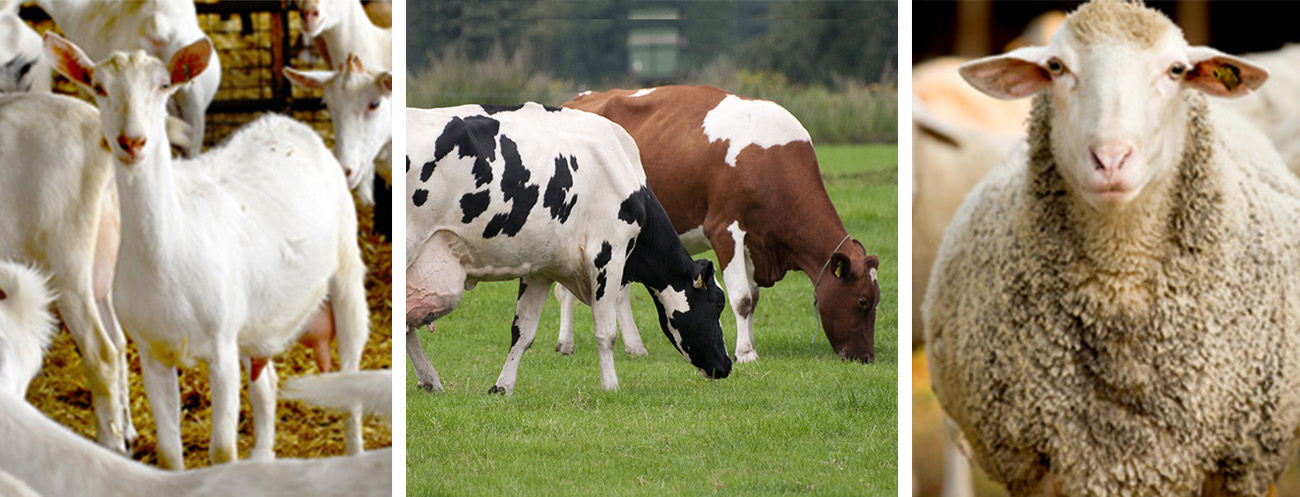Return to Dairy in Minnesota main menu.
Situation Updates: H5N1 Highly Pathogenic Avian Influenza and Dairy Cattle
The MDA Dairy Inspection Program is a regulatory program designed to ensure that milk and other dairy products are safe for consumption. Dairy inspectors perform inspections of the facilities and equipment involved in producing, collecting, and processing milk. This includes dairy farms producing milk from cows, sheep, and goats; milk tanker trucks; and dairy processing plants. Inspections are performed regularly according to state and federal requirements.

Dairy Inspection Responsibilities
In Minnesota, milk and other dairy products are produced under either the Grade A program or the manufacturing grade program. Dairy inspectors conduct inspections to ensure facilities meet state and federal requirements under each applicable program. For a current map of dairy inspector territories, refer to Dairy Inspector Responsibilities.
Grade A Milk
Fluid milk and other dairy products such as yogurt, cottage cheese, and sour cream are produced according to Grade A program requirements. Without dairy inspection, farmers, dairy plants, and cooperatives would not be able to sell Grade A milk across state lines.
The U.S. Food and Drug Administration (FDA) oversees Grade A milk under the Pasteurized Milk Ordinance (PMO). The National Conference on Interstate Milk Shippers (NCIMS), an organization made up of state dairy regulators, meets every two years to discuss and vote on changes to the PMO. Interstate Milk Shippers Officers (IMS Officers) conduct surveys of Grade A dairy farms and processing plants to ensure they are in compliance with the requirements of the PMO and related documents. The FDA must approve the changes before they become part of the PMO, which sets the federal standards for the Grade A milk program. Minnesota has adopted the PMO standards for Grade A milk.
Manufacturing Grade Milk
Products such as cheese, butter, and ice cream are produced under manufacturing grade milk requirements. Standards for manufacturing grade milk, also known as Grade B milk, are established and overseen by the United States Department of Agriculture (USDA) on the federal level and are found in Milk for Manufacturing Purposes and its Production and Processing. Minnesota has adopted these standards for manufacturing grade milk.
Low Somatic Cell Count Dairy Herds
Somatic cell count (SCC) in milk is a key indicator of milk quality - a lower SCC is better for cheese production and shelf life of bottled milk. Each year, the MDA recognizes Minnesota's low SCC dairy herds as those herds that achieved an average SCC of 100,000 or lower in the previous year.

